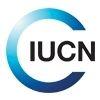|
|

Web Developer
|
The Web Application Developer should be keen and passionate about building state of the art applications, and the nature of the job. The successful candidate will work closely with a network of conservation scientists, other web and geospatial experts, and will be responsible for maintaining and building on the current high-profile systems behind the IUCN Red List.
A good first degree in Computer Science or equivalent is needed, together with good experience of developing web-based applications using multiple technologies like Ruby on Rails, Python, Java, HTML, Javascript, and CSS. Experience with SQL databases like PostgreSQL is essential.
Whilst experience in the above technologies is important, applicants with demonstrable experience in similar types of frameworks and languages and who are motivated to learn and expand their skills will also be considered. The position involves the handling of critical data, hence good management and organization skills are also required.
A detailed description of this role and the main skills we are looking for is available further down, but essentially, we are looking for a developer who would be a keen self-motivated technology enthusiast, who is not daunted by trying out new technologies and be able to think outside the box, with an eye for optimisation, performance, security and understand the complexities of data management. The position involves the handling of critical data, hence good management and organization skills are also required. The developer would be expected to work in a team that manages the full-stack of critical web applications.
• Supporting the ongoing development of the Species Information Service, which is the main system managing the Red List assessment process
• Assisting in the design and development of new functionality for the Red List websites, and GIS related activities.
• Contribute to design of architecture of applications
• Implementation of a robust set of services and APIs to power web applications
• Building reusable code and libraries
• Implementation of secure systems and data protection
• Translation of UI/UX wireframes to visual web elements.
• Integration of front-end and back-end aspects of the web application.
• Integrate testing as part of development process.
• Learning new technologies and staying on top of trends in web development
• Strong focus on quality of outputs.
• Supporting the maintenance of web applications and databases where required.
• Assisting the line manager in developing better approaches and platforms for improving the Red List processes.
• Assisting the Line Manager in translation user needs to system requirements.
|
• Essential: ? Commercial experience in a software development team ? Experience in back-end development with good knowledge of Ruby on Rails ? Experience in front-end development with experience in HTML, CSS/SASS and Javascript ? Familiar and experience with javascript-based frameworks and libraries. ? Comfortable using GIT/Version control ? Delivering projects in an Agile environment ? Demonstrable knowledge of using relational database, and good with database design (PostgreSQL) ? Experience using modern web frameworks ? Experience using cloud-based services • Desirable: ? Knowledge of Geographic Information Systems and relevant software such as ArcGIS and QGIS ? Web Mapping experience (using PostGIS, CartoDB or ArcGIS, and front-end mapping technologies such as Leaflet / Mapbox/ OpenLayers and the likes) ? Continuous integration and deployment experience. ? React / Vue.js experience ? Uses Javascript, Coffeescript, Typescript. |
Applicants are requested to apply online through the HR Management System, by opening the vacancy announcement and pressing the "Apply" button.
Applicants will be asked to create an account and submit their profile information. Applications will not be accepted after the closing date. The vacancy closes at midnight, Swiss time (GMT+1 / GMT+2 during Daylight Saving Time, DST). Please note that only selected applicants will be personally contacted for interviews.
Other job opportunities are published in the IUCN website: https://www.iucn.org/involved/jobs/
About IUCN
IUCN is a membership Union uniquely composed of both government and civil society organisations. It provides public, private and non-governmental organisations with the knowledge and tools that enable human progress, economic development and nature conservation to take place together.
Created in 1948, IUCN is now the world’s largest and most diverse environmental network, harnessing the knowledge, resources and reach of more than 1,400 Member organisations and around 16,000 experts. It is a leading provider of conservation data, assessments and analysis. Its broad membership enables IUCN to fill the role of incubator and trusted repository of best practices, tools and international standards.
IUCN provides a neutral space in which diverse stakeholders including governments, NGOs, scientists, businesses, local communities, indigenous peoples organisations and others can work together to forge and implement solutions to environmental challenges and achieve sustainable development.
Working with many partners and supporters, IUCN implements a large and diverse portfolio of conservation projects worldwide. Combining the latest science with the traditional knowledge of local communities, these projects work to reverse habitat loss, restore ecosystems and improve people’s well-being.
www.iucn.org
https://twitter.com/IUCN
